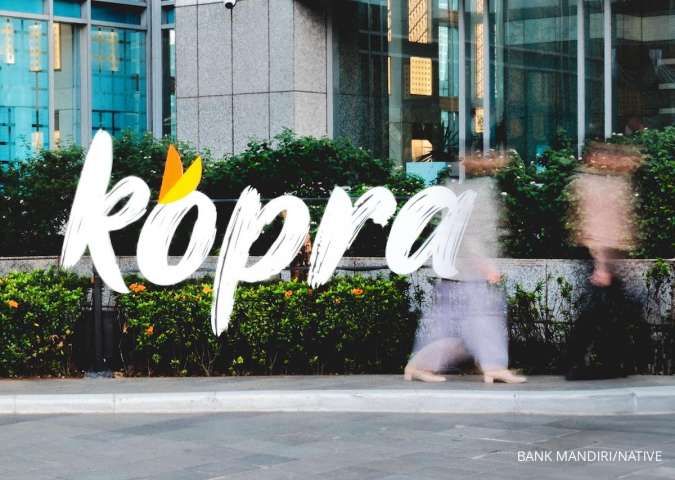JAKARTA. Being one of the smallest parties in the last three general elections, the Crescent Star Party (PBB) continues to remain in relative obscurity.Established in July 1998 when Indonesia was transitioning from the New Order regime to reformation democracy, its founders and members had sought to revive the past glory of the defunct Masyumi Party through the PBB. Masyumi used to be the strongest Islamic-based party, and garnered 20.9 percent of the vote in the 1955 election, winning in 10 out of 15 provinces across the archipelago. With the support of a number Islamic mass organizations such as the Indonesian Islamic Preaching Council (DDII), Indonesian Muslim Scholars Union (ICMI), Islamic Union (Persis), Indonesian Muslim Students Association (HMI), Indonesian Islamic Boarding School Coordinating Body (BKSPPI) and Indonesian Muslim Union (PUI), the party was officially declared on July 26, 1998.Indonesia’s prominent state law expert Yusril Ihza Mahendra, who was also former law and human rights minister in the administration of Megawati Soekarnoputri, led the party at that time, and former forestry minister MS Kaban was the secretary-general.Even though the PBB did not make a big splash in the 1999 election, it was able to collect 2 percent of the vote, or 2,050,000 votes, thereby securing 13 seats in the House of Representatives.Its achievement in national politics remained stagnant in the 2004 election, when it garnered 2.62 percent of the total vote or around 2.9 million votes.After that, support for the party decreased. In 2009, the party won 1.7 percent of the vote, meaning PBB had missed the 2.5 legislative threshold and thus currently is unrepresented in the House.Recent surveys have shown that PBB will need to mobilize an extraordinary effort if it hopes to stand a chance in this year’s election.A Pol-Tracking Institute Center for Democracy and Leadership Research survey released in January this year found that less than 1 percent out of 1,200 respondents nationwide said they would vote for the Islamic party, positioning it at the bottom of the country’s list of parties together with Sutiyoso’s Indonesian Justice and Unity Party (PKPI).Indonesian Institute of Sciences (LIPI) political analyst Syamsuddin Haris said that PBB did not have any chance to win the election because their constituency was unclear.“They claim to be historically related to Masyumi but it is something that anyone can claim. I do not see the clear base of their supporters today,” Syamsuddin told The Jakarta Post.He said that the low populartiy was also due to the party not being able to capture public aspirations in their campaigns. Additionally, the vision, mission and platform of the party were not promoted well to the public, making the PBB quite unfamiliar among citizens.“It is better for them to merge with another party in the future unless they want to remain an insignificant party in the country. After the Indonesian Democratic Party of Struggle [PDI-P] named [Jakarta Governor] Joko Widodo as its presidential candidate, it has become much harder for everyone, particularly a small party like them, to compete in the election,” Syamsuddin said.Centre for Strategic and International Studies (CSIS) analyst J. Kristiadi echoed the same opinion, saying that PBB was not able to embrace the public. He said PBB was too exclusive and did not have the ability to win the people’s hearts.“They should be looking at PKS [the Prosperous Justice Party], an Islamic-based party that has the ability to channel people’s aspiration and is very open. These are the two selling points that the PBB does not have,” he told the Post.Unlike Syamsuddin, who recommended the dissolution of PBB and a merger with another stronger party, Kristiadi said PBB still had a chance to breathe again in the 2019 election if it could improve the way it attracted the heterogeneous body of voters in the archipelago.In a recent interview with the Post, the party’s presidential hopeful, Yusril, said that filing his judicial review challenging the 2008 Presidential Election Law was a strategy to pull off an upset victory.“PBB is a small party, which does not have money and power. This is the only way we can fight against the ‘political status quo’,” he told the Post.After he lost the judicial review, he said that he was afraid the country’s political system would become an oligarchy.The Constitutional Court issued its ruling last week, precluding smaller parties from fielding their own presidential candidate.“However, it is not a problem for me. What’s important is that I have warned them, through my petition, about the constitutional problem faced by the next president,” Yusril said after the ruling.In his petition, he had argued that presidential candidates should be nominated by a political party or coalition of parties before the April 9 legislative election. He demanded the court throw out the presidential threshold rule and impose its ruling on simultaneous elections this year, instead of in 2019.Despite negative sentiments from analysts, PBB’s secretary-general BM Wibowo Hadiwardoyo said the party remained optimistic that it could get more than 5 percent of total votes in the 2014 election.“We approach the people door-to-door and introduce our party’s vision and mission and our candidates for them to consider. Our supporters’ base is quite strong at the regional level […] And everyone in the party works hard,” he said. (Nurfika Osman)
2014 election may be PBB’s last gasp
JAKARTA. Being one of the smallest parties in the last three general elections, the Crescent Star Party (PBB) continues to remain in relative obscurity.Established in July 1998 when Indonesia was transitioning from the New Order regime to reformation democracy, its founders and members had sought to revive the past glory of the defunct Masyumi Party through the PBB. Masyumi used to be the strongest Islamic-based party, and garnered 20.9 percent of the vote in the 1955 election, winning in 10 out of 15 provinces across the archipelago. With the support of a number Islamic mass organizations such as the Indonesian Islamic Preaching Council (DDII), Indonesian Muslim Scholars Union (ICMI), Islamic Union (Persis), Indonesian Muslim Students Association (HMI), Indonesian Islamic Boarding School Coordinating Body (BKSPPI) and Indonesian Muslim Union (PUI), the party was officially declared on July 26, 1998.Indonesia’s prominent state law expert Yusril Ihza Mahendra, who was also former law and human rights minister in the administration of Megawati Soekarnoputri, led the party at that time, and former forestry minister MS Kaban was the secretary-general.Even though the PBB did not make a big splash in the 1999 election, it was able to collect 2 percent of the vote, or 2,050,000 votes, thereby securing 13 seats in the House of Representatives.Its achievement in national politics remained stagnant in the 2004 election, when it garnered 2.62 percent of the total vote or around 2.9 million votes.After that, support for the party decreased. In 2009, the party won 1.7 percent of the vote, meaning PBB had missed the 2.5 legislative threshold and thus currently is unrepresented in the House.Recent surveys have shown that PBB will need to mobilize an extraordinary effort if it hopes to stand a chance in this year’s election.A Pol-Tracking Institute Center for Democracy and Leadership Research survey released in January this year found that less than 1 percent out of 1,200 respondents nationwide said they would vote for the Islamic party, positioning it at the bottom of the country’s list of parties together with Sutiyoso’s Indonesian Justice and Unity Party (PKPI).Indonesian Institute of Sciences (LIPI) political analyst Syamsuddin Haris said that PBB did not have any chance to win the election because their constituency was unclear.“They claim to be historically related to Masyumi but it is something that anyone can claim. I do not see the clear base of their supporters today,” Syamsuddin told The Jakarta Post.He said that the low populartiy was also due to the party not being able to capture public aspirations in their campaigns. Additionally, the vision, mission and platform of the party were not promoted well to the public, making the PBB quite unfamiliar among citizens.“It is better for them to merge with another party in the future unless they want to remain an insignificant party in the country. After the Indonesian Democratic Party of Struggle [PDI-P] named [Jakarta Governor] Joko Widodo as its presidential candidate, it has become much harder for everyone, particularly a small party like them, to compete in the election,” Syamsuddin said.Centre for Strategic and International Studies (CSIS) analyst J. Kristiadi echoed the same opinion, saying that PBB was not able to embrace the public. He said PBB was too exclusive and did not have the ability to win the people’s hearts.“They should be looking at PKS [the Prosperous Justice Party], an Islamic-based party that has the ability to channel people’s aspiration and is very open. These are the two selling points that the PBB does not have,” he told the Post.Unlike Syamsuddin, who recommended the dissolution of PBB and a merger with another stronger party, Kristiadi said PBB still had a chance to breathe again in the 2019 election if it could improve the way it attracted the heterogeneous body of voters in the archipelago.In a recent interview with the Post, the party’s presidential hopeful, Yusril, said that filing his judicial review challenging the 2008 Presidential Election Law was a strategy to pull off an upset victory.“PBB is a small party, which does not have money and power. This is the only way we can fight against the ‘political status quo’,” he told the Post.After he lost the judicial review, he said that he was afraid the country’s political system would become an oligarchy.The Constitutional Court issued its ruling last week, precluding smaller parties from fielding their own presidential candidate.“However, it is not a problem for me. What’s important is that I have warned them, through my petition, about the constitutional problem faced by the next president,” Yusril said after the ruling.In his petition, he had argued that presidential candidates should be nominated by a political party or coalition of parties before the April 9 legislative election. He demanded the court throw out the presidential threshold rule and impose its ruling on simultaneous elections this year, instead of in 2019.Despite negative sentiments from analysts, PBB’s secretary-general BM Wibowo Hadiwardoyo said the party remained optimistic that it could get more than 5 percent of total votes in the 2014 election.“We approach the people door-to-door and introduce our party’s vision and mission and our candidates for them to consider. Our supporters’ base is quite strong at the regional level […] And everyone in the party works hard,” he said. (Nurfika Osman)

